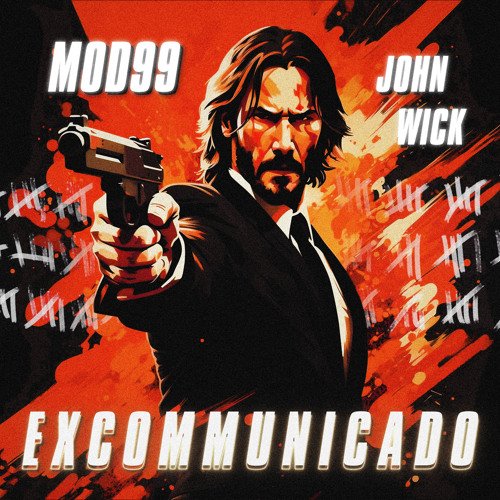The term excommunicado has become quite popular, especially among fans of action movies and series. While many might recognize it from films like John Wick, its roots run much more profound, entwined in historical, religious, and cultural contexts. This article aims to thoroughly understand excommunication, exploring its meanings, implications, and usage in modern culture, particularly in media and entertainment.
What Does Excommunicado Mean?
At its core, excommunicado is derived from the Latin word “excommunicare,” meaning “to expel from communion.” This term is often used in religious contexts, particularly within Christianity, where it refers to the formal exclusion of an individual from the church. When someone is excommunicated, they are essentially cut off from participating in the sacraments and the communal aspects of the faith.
In a broader sense, being labeled excommunicate means that an individual is ostracized or expelled from a community or organization, often for behavior or beliefs that contradict the norms or rules established by that group. This term carries a weight of consequence, illustrating a severe and usually irrevocable decision.
Historical Background of Excommunication
Excommunication has a rich history, particularly in the context of Christianity. The practice dates back to the early church, when maintaining the purity of the faith was paramount. Here are some key points about the history of ex-communication:
- Early Church: In the early days of Christianity, excommunication was employed to maintain doctrinal integrity. It served as a warning to others about the seriousness of straying from the faith.
- The Council of Nicaea (325 AD): This pivotal council addressed various theological disputes and established formal procedures for excommunication within the church.
- Notable Excommunications: Throughout history, various figures have been excommunicated, including popes, kings, and theologians. For example, Martin Luther was excommunicated in 1521 for his role in the Protestant Reformation, which had lasting effects on Christianity.
The Process of Excommunication
The process of ex-communication varies among different religious denominations, but it typically involves several steps:
- Warning: The individual may receive warnings about their behavior or beliefs that are deemed unacceptable.
- Formal Hearing: In some cases, a formal hearing is held to discuss the individual’s actions and determine whether excommunication is warranted.
- Official Declaration: If the decision to proceed with excommunication, an official declaration is made, often involving church authorities.
- Notification: The individual is informed of their excommunication and its implications, including being barred from participating in sacraments.
Consequences of Excommunication
Being excommunicated has significant consequences, both spiritually and socially. Here’s a breakdown:
- Spiritual Consequences: The individual is cut off from receiving sacraments, considered vital for salvation in many Christian denominations.
- Social Isolation: Excommunication often leads to social ostracism, where the individual may be shunned by friends, family, and community members.
- Loss of Rights: In some cases, excommunication can lead to a loss of rights within the church, such as holding office or participating in church activities.
The Concept of Excommunicado in Popular Culture
In recent years, the term excommunicado has gained a new life in popular culture, mainly through film and television. One of the most notable instances is in the John Wick franchise.
Excommunicate in John Wick
In the John Wick series, excommunicado describes a character’s expulsion from the assassin’s guild, the Continental. When John Wick is declared excommunicado, he is effectively stripped of all protections and privileges, leading to intense consequences. Here are some aspects of this portrayal:
- Rules of the Guild: The assassin’s guild operates on a strict code of conduct, which results in excommunication.
- Consequences of Excommunication: Once declared excommunicado, all guild members are instructed to hunt down the individual, making it a death sentence in the brutal world of assassins.
- Symbolism: The term highlights themes of loyalty, honor, and the dire consequences of betrayal within the assassin’s community.
Other Examples in Media
- Television Shows: The term has also been used in various TV shows to illustrate characters being cast out from their communities, whether a religious sect or a group of friends.
- Literature: Many novels utilize the concept of excommunication to explore themes of isolation and the human experience. Characters facing this consequence often undergo significant transformations.
The Psychological Impact of Excommunication
Being excommunicated can have profound psychological effects on individuals. The feelings of isolation, shame, and loss can be overwhelming. Here’s a closer look at these impacts:
- Feelings of Worthlessness: Individuals may struggle with self-esteem issues, feeling rejected and unworthy of love and acceptance.
- Fear of Rejection: Once someone has been excommunicated, they may develop a fear of forming new relationships and facing similar rejection.
- Long-Term Trauma: For some, the effects of excommunication can lead to long-term trauma, manifesting as anxiety, depression, or even post-traumatic stress.
Finding Redemption After Excommunication
While excommunication can seem like a definitive end, many religious and community frameworks offer paths to redemption and reconciliation. Here’s how this can unfold:
- Repentance: Many traditions emphasize the importance of sincere repentance, which can lead to forgiveness and reinstatement.
- Community Support: Some communities have programs or support groups aimed at helping excommunicated individuals reintegrate and heal.
- Personal Growth: Some people find that being excommunicated spurs personal growth, prompting them to reevaluate their values and beliefs.
Seeking Forgiveness
The journey toward seeking forgiveness can be challenging, but it is often rewarding. Here are steps individuals might take:
- Acknowledgment: Recognizing the behavior that led to excommunication is the first step toward healing.
- Apology: Offering a sincere apology to those affected can help mend relationships and restore trust.
- Action: Demonstrating change can be crucial in regaining acceptance within a community.
The Future of Excommunicado in Society
As society evolves, so too does the concept of excommunicado. The digital age, in particular, has transformed how communities form and maintain boundaries. Here are some trends to consider:
- Online Communities: In virtual spaces, excommunication can occur through bans or suspensions from social media platforms or online forums.
- Changing Norms: As cultural norms shift, the implications of excommunication may also change, with communities becoming more inclusive and forgiving.
- Awareness and Advocacy: Increased awareness of mental health and the impacts of ostracism may lead to more compassionate approaches to handling conflicts within communities.
Conclusion: The Lasting Impact of Excommunicate
In summary, the term excommunicate embodies a complex mix of historical, cultural, and psychological themes. While its roots lie in religious practice, its implications resonate throughout society today, particularly in popular culture and personal relationships. Understanding excommunication allows us to appreciate the weight of belonging and the severe consequences of exclusion.
As we navigate our interconnected lives, recognizing the potential harm of ostracism is crucial. We can foster communities prioritizing acceptance over exclusion through empathy, understanding, and the willingness to offer second chances. After all, everyone deserves the opportunity to find their way back, even after being declared excommunicado.

